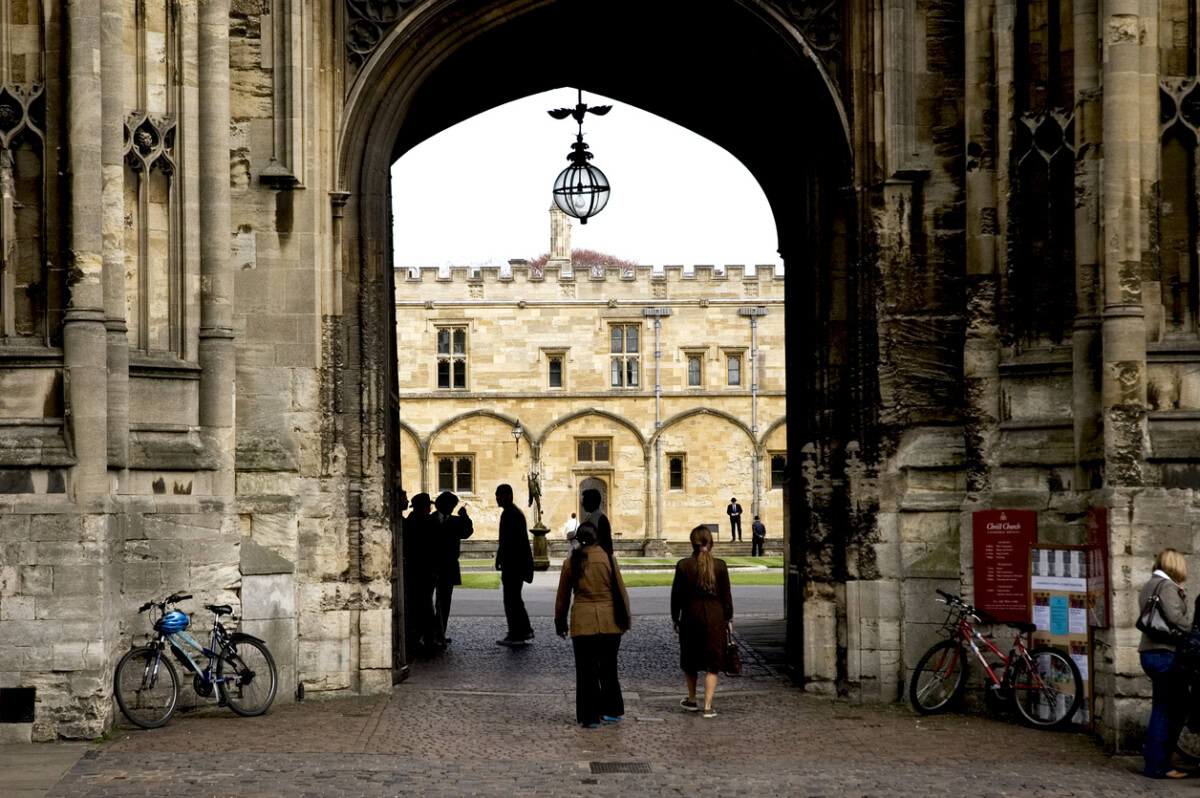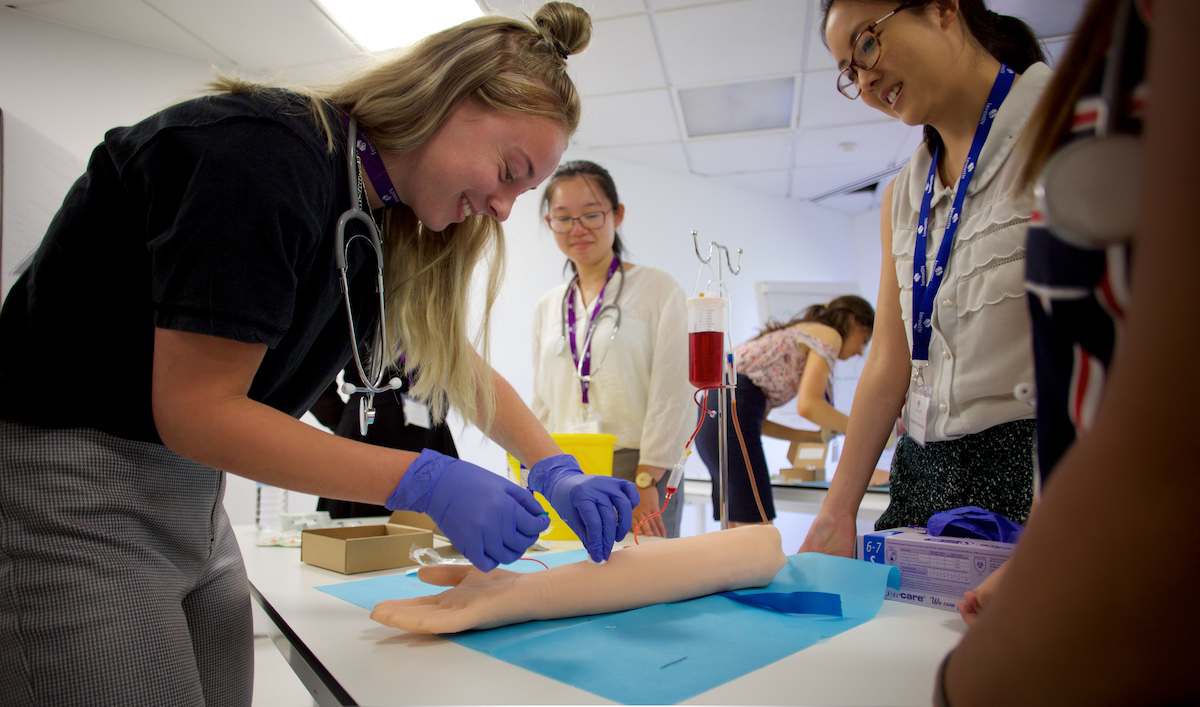How to Find Work Experience for Medicine
Gaining relevant work experience is essential for any student aspiring to study medicine. Not only does it strengthen your application, but also gives you a real taste of what it’s like to work in healthcare. In this guide, we’ll explore different ways to find medical work experience, how to reflect on it for your personal statement, and how Dukes Plus can support you throughout the process.
We also have guides on finding placements in related fields – take a look at our advice on vet work experience and psychology work experience.
Why is Work Experience Crucial for Medical School Applications?
Medical schools require applicants to demonstrate a commitment to the field by gaining work experience, whether paid or voluntary. This helps students develop essential skills such as communication, empathy, and problem-solving — qualities that are crucial for a career in medicine. According to guidance from The Medic Portal, NHS Health Careers, and the British Medical Association, work experience allows students to witness patient care first-hand, understand the day-to-day responsibilities of medical professionals, and prepare for the challenges they will face.
Work experience plays a significant role in your personal statement and interviews, where you can highlight how these experiences shaped your decision to pursue a career in medicine.

Oxbridge Medicine Prep for £25
Comprehensive e-learning courses, designed by our admissions experts, for applicants to Medicine at Oxford or Cambridge.
Top Work Experience Options to Boost Your Medical Application
Here’s an overview of work experience opportunities you can pursue:
Hospital Placements
These are highly regarded by medical schools as they provide direct observation of patient care. Shadowing doctors, observing surgeries, and interacting with healthcare teams are some of the most valuable experiences you can gain.
GP Placements
Working in a general practice setting helps you understand primary healthcare. It’s an excellent way to develop communication skills as you’ll observe how doctors interact with patients and manage community healthcare.
Volunteering in Care Homes or Hospices
Volunteering offers a long-term commitment to patient care. By working with elderly or terminally ill patients, you’ll develop empathy and learn essential caregiving skills, which are highly valued in medical school applications.
Online Work Experience
For students unable to access in-person placements, virtual work experience platforms like Observe GP offer insights into patient care through digital shadowing.
Medical Research
Engaging in medical research demonstrates your interest in scientific inquiry and problem-solving. It’s a great addition to your application, particularly for students interested in academic medicine.
How to Secure Work Experience for Medicine
Finding work experience can be competitive, but here’s a step-by-step guide to help you secure the best opportunities:
Contact Local Hospitals and GP Practices
Send formal email requests to hospitals and GP practices in your area, explaining why you want to shadow a doctor or work within their facility. Be both professional and persistent in your inquiries.
Utilise Personal Networks
If you have family members, friends, or teachers in healthcare, be bold and ask them to help you arrange work experience. Making the most of personal connections can often lead to shadowing opportunities.
Apply to Volunteering Organisations
Organisations like St. John Ambulance and the British Red Cross regularly offer volunteering roles in healthcare settings. These can be a great way to gain experience while helping your community.
Use Online Platforms
Platforms like Medify and NHS Health Careers offer resources and tools to help you find virtual placements and internships in the healthcare sector.
Gaining Work Experience During COVID-19 and Beyond
The COVID-19 pandemic has made it more difficult to secure traditional work experience, but there are still plenty of opportunities to gain valuable experience:
Virtual Work Experience
Platforms like MedEntry and Observe GP offer online shadowing experiences where students can explore the medical field virtually. These experiences are now widely accepted by medical schools.
Volunteering in Non-Medical Roles
During the pandemic, roles such as volunteering at vaccine centres or supporting community health initiatives have provided students with transferable skills. These experiences still count towards your medical application, particularly when highlighting skills like communication and teamwork.
Reflecting on Your Work Experience for Your Application
Reflecting on your experiences is just as important as gaining them. Medical schools want to see how you’ve learned and grown from your experiences.
Key Skills and Insights
In your personal statement and interviews, make sure to highlight the skills you’ve developed through work experience. For example, you can mention how observing a doctor’s patient interactions helped you understand the importance of communication in healthcare.
Connecting Experiences to Medical Competencies
Link your experiences to core medical competencies. For instance, working in a care home can demonstrate empathy and your ability to work in a team, both crucial skills for a future doctor.
Use of a Reflection Template
A structured reflection template can help you organise your thoughts and prepare for your application. Break down each experience, noting the key skills gained, challenges faced, and how the experience solidified your passion for medicine.
Case Study: How Dukes Plus Helped a Student Secure Work Experience
At Dukes Plus, we recently helped a student secure a volunteering position in a care home, which later led to a shadowing opportunity at a local hospital. By guiding the student through the reflection process, we helped them develop a compelling personal statement that highlighted their empathy, communication skills, and passion for healthcare. This holistic approach significantly strengthened their medical school application, leading to offers from top universities.
How Dukes Plus Can Help
Dukes Plus provides a range of services to help students navigate the challenging process of applying to medical school. Our team offers:
We help you reflect on your work experience and craft a personal statement that stands out.
Get ready for interviews with our expert-led mock sessions and tailored feedback.
We offer comprehensive preparation for the UCAT to help you boost your score.
Incredible summer schools and work experience in medicine.

Medicine Summer Schools
Experience a career in medicine and boost your medical school applications with our incredible summer schools.
FAQs
Clinical placements, such as shadowing doctors in hospitals or GPs, are highly recommended, but non-clinical roles in care homes or community healthcare settings are also valuable.
You can contact hospitals and clinics directly or use platforms like Medify or NHS Health Careers to find opportunities.
Yes, virtual work experience is widely accepted and provides valuable insights into patient care and the medical profession.
Ideally, you should start in Year 12, but earlier experiences related to healthcare can also be beneficial.
Focus on the skills you developed during your work experience, such as communication, problem-solving, and empathy, and how these experiences shaped your desire to pursue medicine.
While there is no set requirement, having a mix of clinical and non-clinical experience over at least two weeks is ideal.


